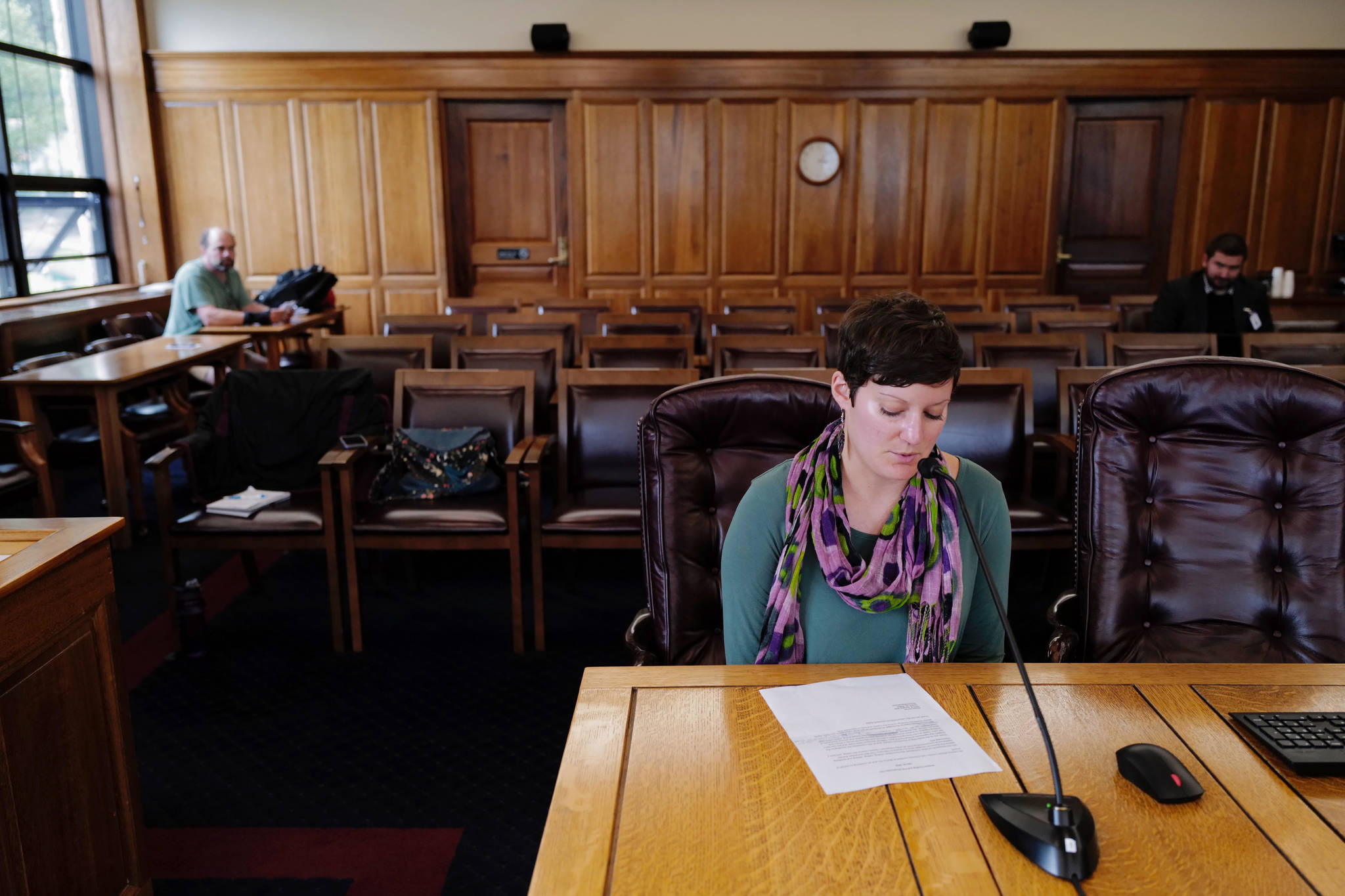CORRECTION: An earlier version of this article incorrectly stated that public testimony would be heard through Friday. Wednesday is the last opportunity to make public comment. The article has been updated to reflect this change.
As person after person stepped up to the microphone, in Wasilla, in Anchorage and Juneau, many described the current budget situation, the split legislature and legislative deadlock as “disgusting,” “disgraceful,” and “irresponsible.”
Alaskans were deeply divided in their testimony — which got heated and emotional at times — about what to do about the budget and PFD.
On one side, a “callous” and “short-sighted” governor and his supporters in the legislature have doomed the state to recession and economic devastation by cutting essential services.
On the other, it was a irresponsible legislature that had squandered the state’s money on foolish programs and ripped away constitutionally mandated money that families depend on.
Both sides accused the other of entitlement, and ignoring the will of the people and the constitution, and of kowtowing to special interests, albeit for different reasons.
Speakers traded barbs at each other, calling those in opposition “greedy” or “entitled,” but at times sounded remarkably similar to one another.
One specific issue at hand was House Bill 2001, an appropriations bill currently before the House Finance Committee that could potentially restore a significant amount of the money cut from the state budget by Dunleavy’s vetoes. After the legislature failed to override the governor’s vetoes earlier this month, the $444 million in cuts to the state budget were allowed to stand, at least for now.
In order to pay for the myriad programs and services across the state, HB 2001 only appropriates $1,600 for the Permanent Fund Dividend. Gov. Mike Dunleavy has promised to return the PFD amount to what it was before the previous governor, Bill Walker, reduced the money paid in the dividend in order to balance the state budget. Dunleavy has also promised to give back pay for the money not paid in the PFD during Walker’s tenure.
Dozens of speakers appeared before the House Finance Committee Monday and Tuesday, with people from both sides of the debate showing up in large numbers.
Speakers on both sides were moved to tears in their testimonies about what each outcome would mean for them and their families.
One speaker from Wasilla told the committee that he and his family had depended on the PFD year after year just to get by.
“You guys sit here and bicker and fight and I can’t get my PFD. You want to hear a sob story, there’s one right there,” he said. “I didn’t depend on the government, I did it myself,” he added, of taking care of his family.
Others suggested that taking away the PFD would cause more people to become dependent on government programs, causing those costs to skyrocket.
“You’re going to have to look at how many people you are going to make need your help if you take this away from us,” one woman said, telling of how she and her family depended on the PFD to buy winter clothes.
An older, formerly homeless man gave testimony, but it was unclear which side he was supporting.
“I think politicians should have to live homeless for a year, experience what’s it’s like to have someone try and take everything from you,” the man said. “I don’t see anything being taken from the rich,” he said.
Mary Forbes, in Fairbanks, testified that she was very worried by the “disturbing sense of entitlement,” she has seen from some people recently. She said she strongly opposed the governor’s vetoes and supported a progressive income tax.
“In the years we’ve lived in Alaska we received far more from the PFD than we’ve paid in property and sales tax,” one man said of himself and his wife. “I think I should pay my way through an income tax. We’ve taken in more than we’ve given back.”
Alyson Currey, one of only a few people to testify from Juneau said that she felt the governor’s vetoes were “reckless” and that “we’ll see more harm to vulnerable Alaskans.” She said she also wanted to thank the legislators who showed up in Juneau earlier this month for trying to find a solution.
While HB 2001, introduced by the House Finance Committee earlier this month, could potentially restore some of the funding cuts by Dunleavy, the bill would be subject to the governor’s veto which would then require three-fourths of the legislature, or 45 votes, to override. The full text of the bill as well as supplemental documents can be found here.
The Finance Committee will continue hear public testimony through Wednesday from 2-7 p.m. In Juneau, public testimony can be made from room 519 at the Capitol.
• Contact reporter Peter Segall at 523-2228 or psegall@juneauempire.com

